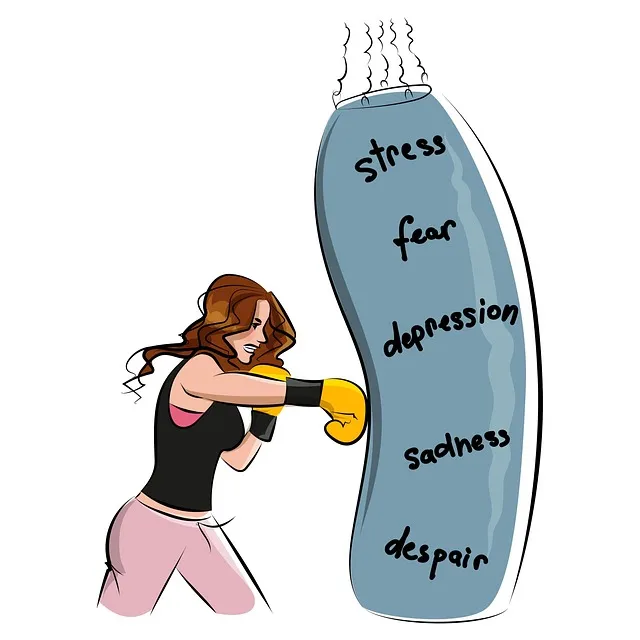Wheat Ridge Kaiser Permanente behavioral health services employs a multi-faceted approach to risk assessment and mitigation, focusing on psychological, social, and environmental factors. By prioritizing comprehensive training, open communication, and evidence-based practices, they foster a supportive environment for both patients with mental illnesses like depression and anxiety, and staff who navigate high-stress situations. Continuous evaluation and integration of best practices ensure personalized, effective care tailored to individual needs, positioning Wheat Ridge Kaiser Permanente as a leader in behavioral health services.
Mental health professionals face unique risks in their line of work, necessitating a thorough understanding and implementation of risk assessment strategies. This article explores these critical aspects within the context of Wheat Ridge Kaiser Permanente Behavioral Health Services, identifying potential hazards and providing insights into effective risk mitigation. From recognizing environmental factors to adopting proactive safety measures, we delve into strategies that enhance patient care at this leading behavioral health facility.
- Understanding Risk Assessment in Mental Health Practices
- Identifying Potential Hazards at Wheat Ridge Kaiser Permanente Behavioral Health Services
- Strategies for Mitigating Risks and Ensuring Safety
- Continuous Evaluation and Improvement for Enhanced Patient Care
Understanding Risk Assessment in Mental Health Practices

In the realm of mental health care, risk assessment is a cornerstone practice that plays a pivotal role in ensuring patient safety and well-being. For professionals at Wheat Ridge Kaiser Permanente behavioral health services, understanding and implementing comprehensive risk assessment strategies are essential components of quality care. This process involves meticulously evaluating patients’ psychological, social, and environmental factors to identify potential risks and hazards that may impact their mental health.
By employing evidence-based methods, mental health professionals can anticipate and mitigate risks effectively. The Stress Management Workshops Organization emphasizes the importance of equipping these practitioners with tools to recognize warning signs of distress in themselves and their clients, fostering an environment conducive to open communication and early intervention. Mental Health Awareness campaigns, coupled with Burnout Prevention strategies, further contribute to a resilient and robust healthcare system where professionals can thrive while providing optimal support to those seeking help.
Identifying Potential Hazards at Wheat Ridge Kaiser Permanente Behavioral Health Services

At Wheat Ridge Kaiser Permanente Behavioral Health Services, identifying potential hazards is a multifaceted process that involves scrutinizing various aspects of the work environment and patient interactions. Mental health professionals here are exposed to a unique set of challenges that require careful consideration. One prominent hazard is the high emotional load carried by these professionals as they deal with patients battling depression, anxiety, and other mental illnesses. This constant exposure to distressing narratives can lead to compassion fatigue if not managed effectively.
Additionally, Wheat Ridge Kaiser Permanente Behavioral Health Services must address the pervasive mental illness stigma reduction efforts required to foster an inclusive environment. Professionals here play a pivotal role in dismantling internalized biases that patients may hold about their conditions. Further, resilience building is another critical component of hazard mitigation. Through regular training and support systems, staff are equipped to handle high-stress situations, ensuring they can maintain optimal performance while delivering quality care.
Strategies for Mitigating Risks and Ensuring Safety

Mental health professionals face unique challenges that require proactive strategies to mitigate risks and ensure safety. At Wheat Ridge Kaiser Permanente behavioral health services, we emphasize a comprehensive approach to risk assessment and management. This involves regular staff training on identifying and addressing potential hazards, fostering an open communication culture where professionals feel empowered to voice concerns, and implementing robust protocols for crisis intervention.
Additionally, our Mental Wellness Podcast Series Production provides platforms for sharing best practices and personal experiences, enhancing cultural sensitivity in mental healthcare practice. By promoting a supportive work environment and encouraging self-care through initiatives like inner strength development, we aim to strengthen the resilience of our professionals. These strategies collectively contribute to creating a secure setting where patients can receive the highest quality of care while fostering their own mental wellness.
Continuous Evaluation and Improvement for Enhanced Patient Care

At Wheat Ridge Kaiser Permanente behavioral health services, continuous evaluation and improvement are at the heart of our commitment to enhanced patient care. Regularly reviewing treatment plans and patient outcomes allows us to adapt our practices, ensuring we provide the most effective and compassionate support for individuals dealing with mental health challenges. This ongoing assessment involves a multifaceted approach that includes peer review, staff training, and incorporating evidence-based techniques like anxiety relief strategies, mood management programs, and compassion cultivation practices.
By fostering a culture of continuous improvement, our team can stay abreast of the latest research and therapeutic methods, enabling us to offer personalized care tailored to each patient’s unique needs. This dedication to excellence not only improves short-term outcomes but also fosters long-lasting positive changes in mental well-being, making Wheat Ridge Kaiser Permanente behavioral health services a leading provider in the field.
Mental health professionals, like those at Wheat Ridge Kaiser Permanente Behavioral Health Services, operate in a complex environment where risk assessment is paramount. By identifying potential hazards and implementing strategies for mitigation, as outlined in this article, practitioners can create safer, more effective patient care environments. Continuous evaluation and improvement are essential components of ensuring the highest standards of safety within mental health practices, ultimately fostering better outcomes for patients.






